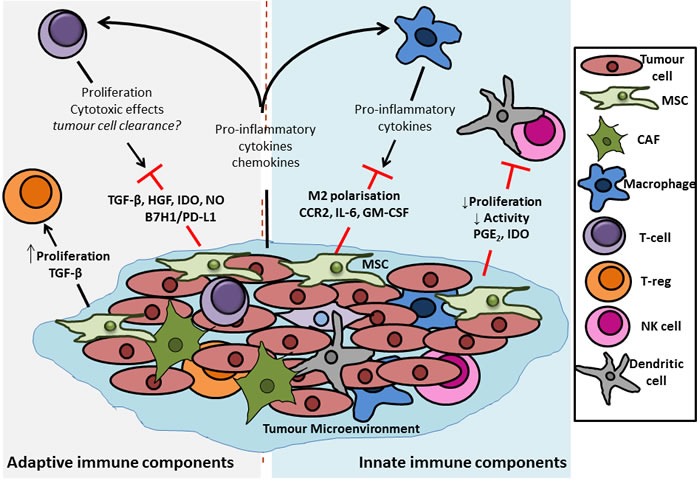Figure 3. Outline of the potential immunomodulatory effects of MSCs in the colon tumour microenvironment.

MSCs have been shown to have potent immunomodulatory effects, acting on components of both the innate and adaptive immune system. In terms of innate immunity it has been shown that MSCs can dampen any early immune response that the host system may mount against a transformed tumour cell. This dampening of the initial response is due to the ability of the MSCs to decrease the proliferation and activation of dendritic cells (DCs) and natural killer (NK) cells, the potential “first responders” of an anti-tumour immune response. Macrophages represent another important group of innate immune cells with the potential to exert anti-tumour response, particularly via release of pro-inflammatory cytokines from their M1, pro-inflammatory-like phenotype. This effect is also hampered by MSCs which act to induce a more M2, anti-inflammatory phenotype in macrophages, thus inhibiting their capacity to clear transformed cells. With regards to the adaptive immune compartment, it has been demonstrated that MSCs have differential effects upon different t-cell populations. Evidence from the literature shows that release of factors such as transforming growth factor (TGF)-β, hepatocyte growth factor (HGF), indoleamine 2,3-dioxygenase (IDO) (human), nand nitric oxide (NO) (rodent) from, and induction of B7H1 or PD-L1 expression on MSCs directly reduces the proliferation and cytotoxic effects of effector CD4+ and CD8+ T cells, thus inhibiting their tumour-clearing capacity. In contrast, signalling by MSCs has been reported to increase the proliferation of regulatory t cells (Tregs), a population which act to suppress the activity of other effector t cells. In healthy tissue this supressed auto-immunity and tolerance of “self” is desirable, but in a tumour, where the aim is to clear transformed cells, the increased proliferation of Tregs can be detrimental to tumour lysing and clearing by cytotoxic T cells.
